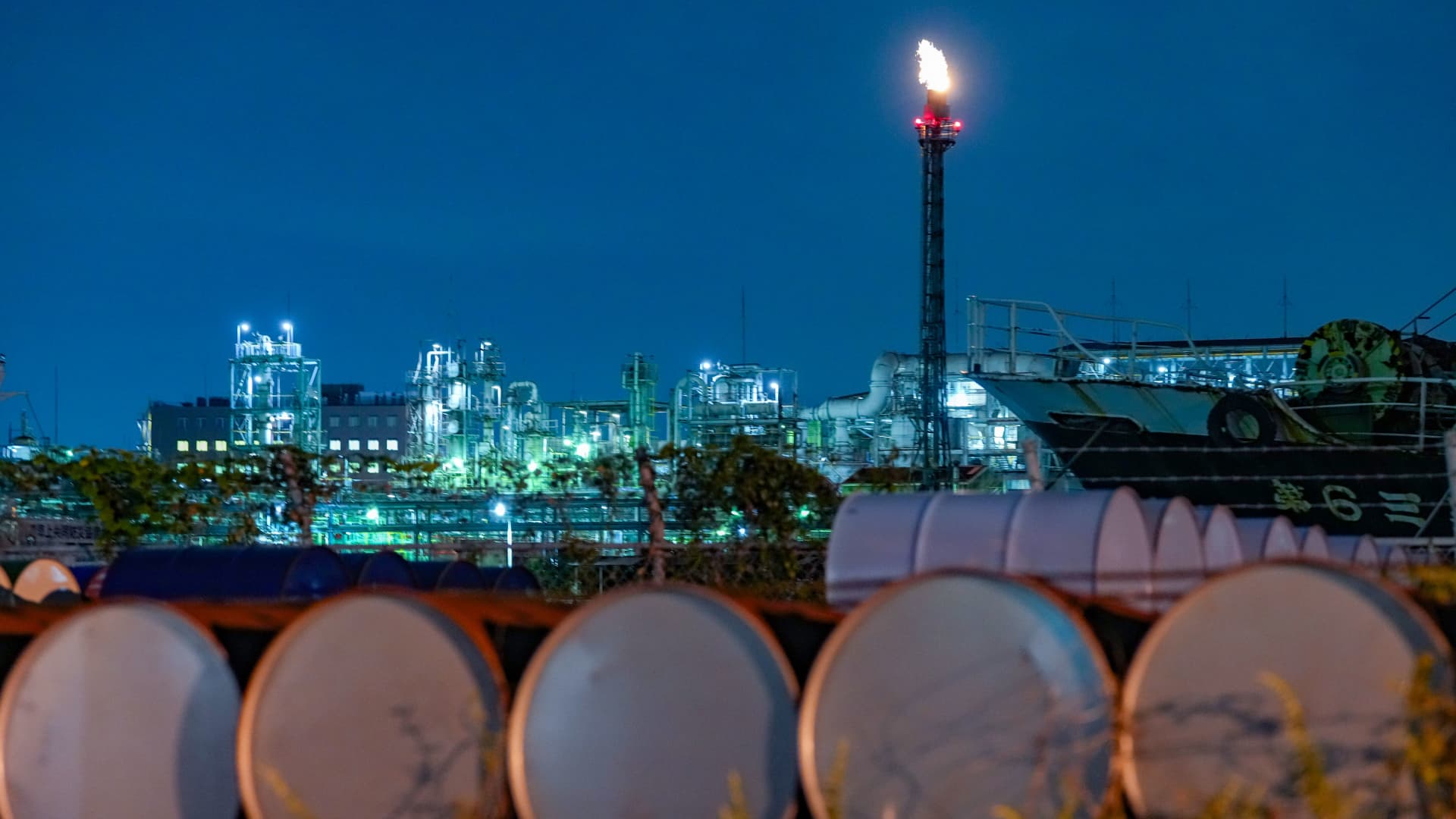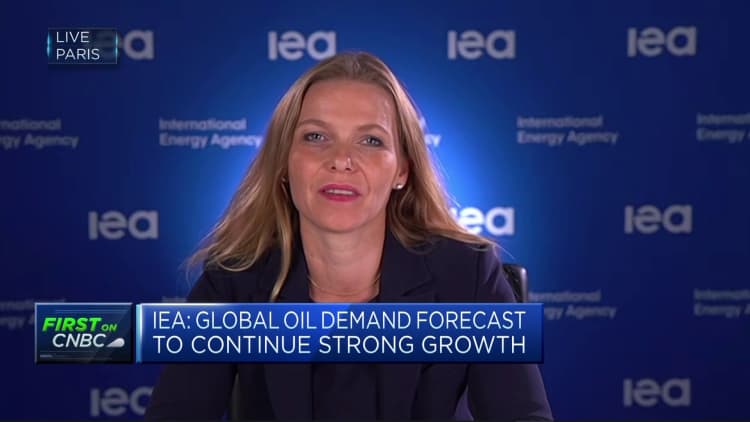'Fraught with uncertainty': IEA says oil markets to remain on tenterhooks as Israel-Hamas war persists
"The Middle East conflict is fraught with uncertainty and events are fast developing," the IEA said in its latest monthly oil market report.

Storage drums stacked in the Keihin industrial area of Kawasaki, Kanagawa Prefecture, Japan, on Wednesday, Oct. 11, 2023.
Bloomberg | Bloomberg | Getty Images
The International Energy Agency on Thursday said that oil markets are likely to remain on edge as the Israel-Hamas war persists, with investors closely monitoring the potential for output disruption in the Middle East.
The world's leading energy watchdog said in its latest monthly oil market report, that while the conflict had not yet had a direct impact on physical supply, energy market participants would "remain on tenterhooks" as the crisis unfolds.
"The Middle East conflict is fraught with uncertainty and events are fast developing," the IEA said in its report.
"Against a backdrop of tightly balanced oil markets anticipated by the IEA for some time, the international community will remain laser focused on risks to the region's oil flows," the energy agency added.
Noting a "sharp escalation in geopolitical risk," the IEA said it would continue to closely monitor oil markets and "stands ready to act if necessary to ensure markets remain adequately supplied."
In the event of an abrupt oil supply shortage, the IEA's response includes member countries releasing emergency stocks and/or implementing demand restraint measures.
Israel is not a major oil producer and no major oil infrastructure runs close to the Gaza Strip.
The IEA notes, however, that the Middle East accounts for more than one third of global seaborne oil trade, and the Israel-Hamas conflict has ratcheted up fears the fighting may affect regional energy production.
The IEA report comes as the Israel-Hamas conflict enters its sixth day and follows a devastating and coordinated assault from Palestinian militant group Hamas on southern Israel over the weekend. Israel has since pulverized Gaza with airstrikes and is expected to launch a ground offensive against Hamas in the region in the coming days.
Israel has also ordered the "complete siege" of the Gaza Strip, seeking to stop the supply of electricity, food, water and fuel to the already blockaded population of roughly 2.3 million people.
As a result of the ongoing Israeli-Hamas war, at least 1,200 Israelis have been killed, with more than 2,700 injured, according to Israel's military. Meanwhile, the Palestinian Ministry of Health says 1,203 people in Gaza have been killed, with 5,763 injured.
'A major concern to the market'
"The conflict has certainly raised geopolitical tensions in the Middle East, and this is something that we at the IEA are watching very closely," Toril Bosoni, head of the oil markets division at the International Energy Agency, told CNBC's "Street Signs Europe" on Thursday.
"For now, there has been no direct impact on supplies. We're watching this. If it spills over and spreads to the wider Middle East this is, of course, a great concern," Bosoni added. "This is something that is a major concern to the market."
Asked whether the IEA was worried about the prospect of OPEC kingpin Saudi Arabia or other oil producers weaponizing oil exports in support of Hamas, Bosoni replied, "What we're hearing from the OPEC+ alliance is that they stand ready to do what they can to stabilize the market, and this is really reassuring."

"Of course, the IEA also has its tools to respond should there be a disruption to supply. For now, that is not something that we're expecting," she added.
When oil markets opened following the surprise attack by Hamas on Israel on Oct. 7, the IEA said traders priced in a $3 to $4 risk premium. However, prices have since stabilized.
Crude futures traded higher on Thursday.
International benchmark Brent crude futures with December expiry traded 0.9% higher at $86.59 per barrel at around 9:30 a.m. London time, while front-month November U.S. West Texas Intermediate crude futures rose 0.7% to trade at $84.06 per barrel.

 Astrong
Astrong 































